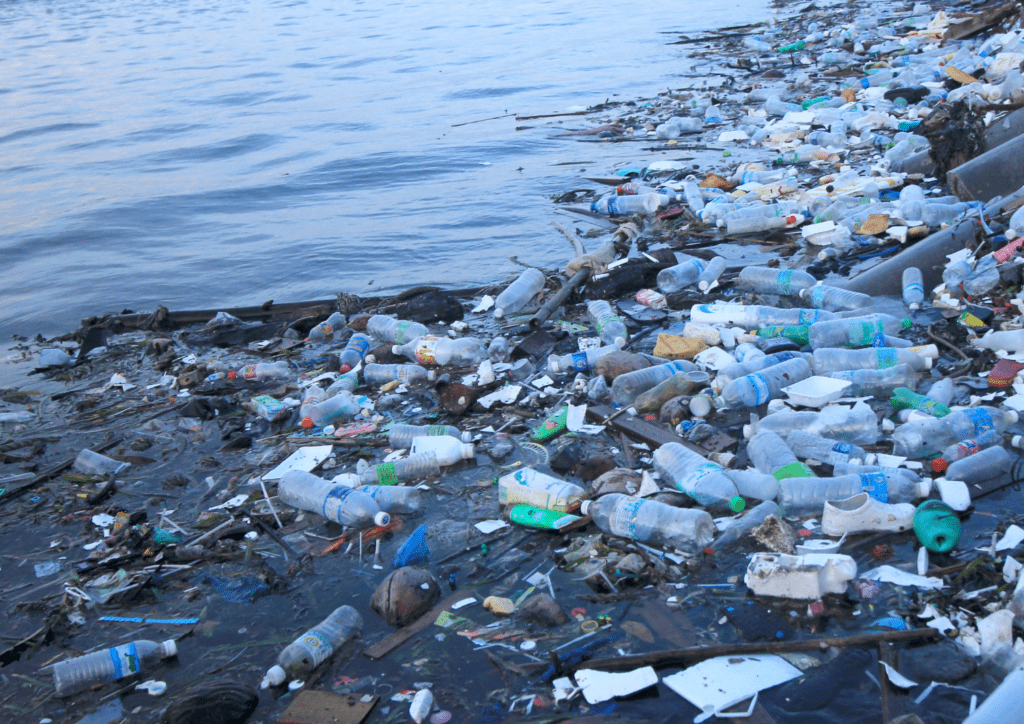Excessive packaging causes plastic pollution and risks exposure to toxic chemical additives, particularly for babies and toddlers
Toronto | Traditional territories of the Mississaugas of the Credit, the Anishinaabeg, the Haudenosaunee, and the Huron-Wendat – A new report from Environmental Defence reveals that almost everything at our grocery stores—from coconuts to doggie dental treats—are encased in plastic. The report, entitled Left Holding the Bag: A Survey of Plastic Packaging in Canada’s Grocery Stores, found that nearly two-thirds of products in four key departments (produce, baby food, pet food and soups) were packaged in plastic.
“People in Canada are sick of all the plastic they bring home from the grocery store,” said Karen Wirsig, Senior Program Manager for Plastics at Environmental Defence, who authored the report. “This research shows plastic has become practically unavoidable and people are right to be frustrated. Too many groceries are packed in throwaway plastic and all the retailers we looked at were guilty.”
The report, based on an audit of 54 high-traffic grocery stores across Canada, including Loblaw, Sobeys and Metro, found:
- 71 per cent of items in the produce department were packed in plastic; only 27 per cent were available with no packaging
- 76 per cent of foods marketed for babies and toddlers were wrapped in plastic
Plastic packaging makes up more than half of the 4 million tonnes of plastic discarded in Canada each year, and less than 15 per cent of that is recycled. Flexible plastics like pouches, sachets and bags are even worse—only 1 per cent of those are recycled. The rest ends up in landfills, incinerators or directly in the natural environment.
There is also a potential human health impact of plastic food packaging, which can contain chemical additives that can leach into foods. What’s more, plastic packaging can be a source of microplastic contamination of food and beverages, as well as microplastic pollution in the environment.
“It is alarming to see all this plastic on our grocery shelves, particularly in the aisles where you’d expect to find the healthiest, safest options like baby food and fresh produce,” said Wirsig. “The plastic pollution crisis has never been more obvious and urgent but despite this, no government or grocery chain has announced plans to address the plastic packaging identified in our report.”
The federal and provincial governments have set a goal of zero plastic waste by 2030 and are implementing policies to address plastic and packaging waste. Grocery chains themselves even say they have plans to reduce throwaway plastics. And yet, the amount of non-recyclable plastic in grocery stores appears to be growing. Without a plan to target plastic food packaging at Canadian retailers, Canada may fall short of its goal.
Environmental Defence is calling on the federal government to expand the ban on non-recyclable plastic packaging; establish requirements for the refill and reuse of packaging; and, restrict or eliminate the use of harmful plastics additives. Grocery stores must move quickly to implement strategies to remove plastic packaging from their shelves, especially the baby food and produce aisles.
ABOUT ENVIRONMENTAL DEFENCE (environmentaldefence.ca): Environmental Defence is a leading Canadian environmental advocacy organization that works with government, industry and individuals to defend clean water, a safe climate and healthy communities.
– 30 –
For more information or to request an interview, please contact:
Lauren Thomas, Environmental Defence, lthomas@environmentaldefence.ca





